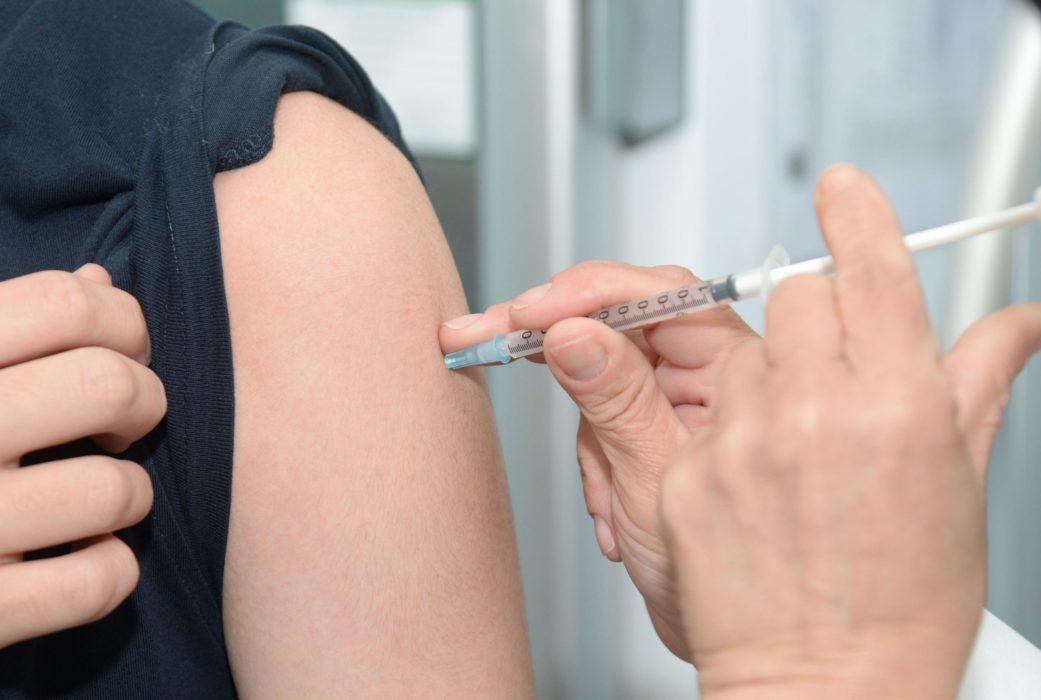
Can Employers Require Employees to be Vaccinated for COVID-19 Before Returning to Work?
August 26, 2020
By Anthony Kaylin, courtesy of SBAM Approved Partner ASE
The short answer is yes. The U.S. Department of Labor’s Occupational Safety and Health Administration (OSHA) and the Equal Employment Opportunity Commission (EEOC) both support this position.
OSHA’s position came about from an inquiry from Ohio Congresswoman Marcy Kaptur during the H1N1 (“swine flu”) outbreak in 2009. OSHA said that “although OSHA does not specifically require employees to take the vaccines, an employer may do so. In that case, an employee who refuses vaccination because of a reasonable belief that he or she has a medical condition that creates a real danger of serious illness or death (such as serious reaction to the vaccine) may be protected under Section 11(c) of the Occupational Safety and Health Act of 1970 pertaining to whistle blower rights.” OSHA added, “It is important to note that employees need to be properly informed of the benefits of vaccinations.”
The EEOC generally states that ADA-covered employers should consider simply encouraging employees to get the influenza vaccine rather than requiring them to take it. The EEOC noted, however, that under the ADA, an employee can be exempted if they have a disability that prevents them from taking the vaccine, and under Title VII they can be exempted if they can demonstrate a “sincerely held religious belief, practice, or observance.”
With respect to an ADA issue, employers will still be required to have the interactive discussion with employees when these questions arise. Failure to do so will lead to potential liability. PPE usage such as full use of mask and gloves, regardless of whether other employees are around, could be an accommodation – as could remote work. Yet the EEOC recognizes that COVID-19 poses a special risk that gives employers greater latitude in what they can require of employees to maintain safe workplaces.
It should also be noted that the EEOC has stated that the ADA does not cover potential disabilities. However, if there is a health issue specific to the vaccine, that will trigger the need for a potential accommodation, but only if the employee brings it up.
The bar to overcome a religious objection is fairly low. Employers can show a “direct threat,” which means a significant risk that “cannot be eliminated or reduced by reasonable accommodation.” Therefore, employers can overcome the religious objection by identifying the direct threat of not taking the vaccine with respect to other employees, customers, or vendors.
In an article by Baruch College law professor Debbie Kaminer, she wrote that under Title VII, employers are not required to provide accommodation if doing so involves more than a minimal cost – and with the presence of COVID-19, they run the risk of far more than minimal cost. “Certainly,” Kaminer wrote, “in the midst of one of the worst public health and financial crises in recent history, there is a significant cost to having an unimmunized workforce.”
A vaccine is months away but your return to work policy can require them. Flu shots have long been required in health care scenarios because the risk to patients is great. Employers in other industries could have required it as well but have not in the past. And in fact, with COVID-19 it is recommended that employers require flu shots as well. It has been found that the most common reason why employees request a medical exemption is an allergy to the flu vaccine, but it may be arguable that this allergy rises to the level to claim ADA protection. Court cases have generally supported employers in these situations.
Legal counsel should now be contacted to discuss appropriate vaccination measures the employer can and should take for return to work. Further, union employers could violate a Collective Bargaining Agreement (CBA) with mandatory policies. If the situation arises where a vaccine is available and employees refuse to take it for whatever reason, employees will not be able to claim “no notice” if they are terminated for failure to take the vaccine.